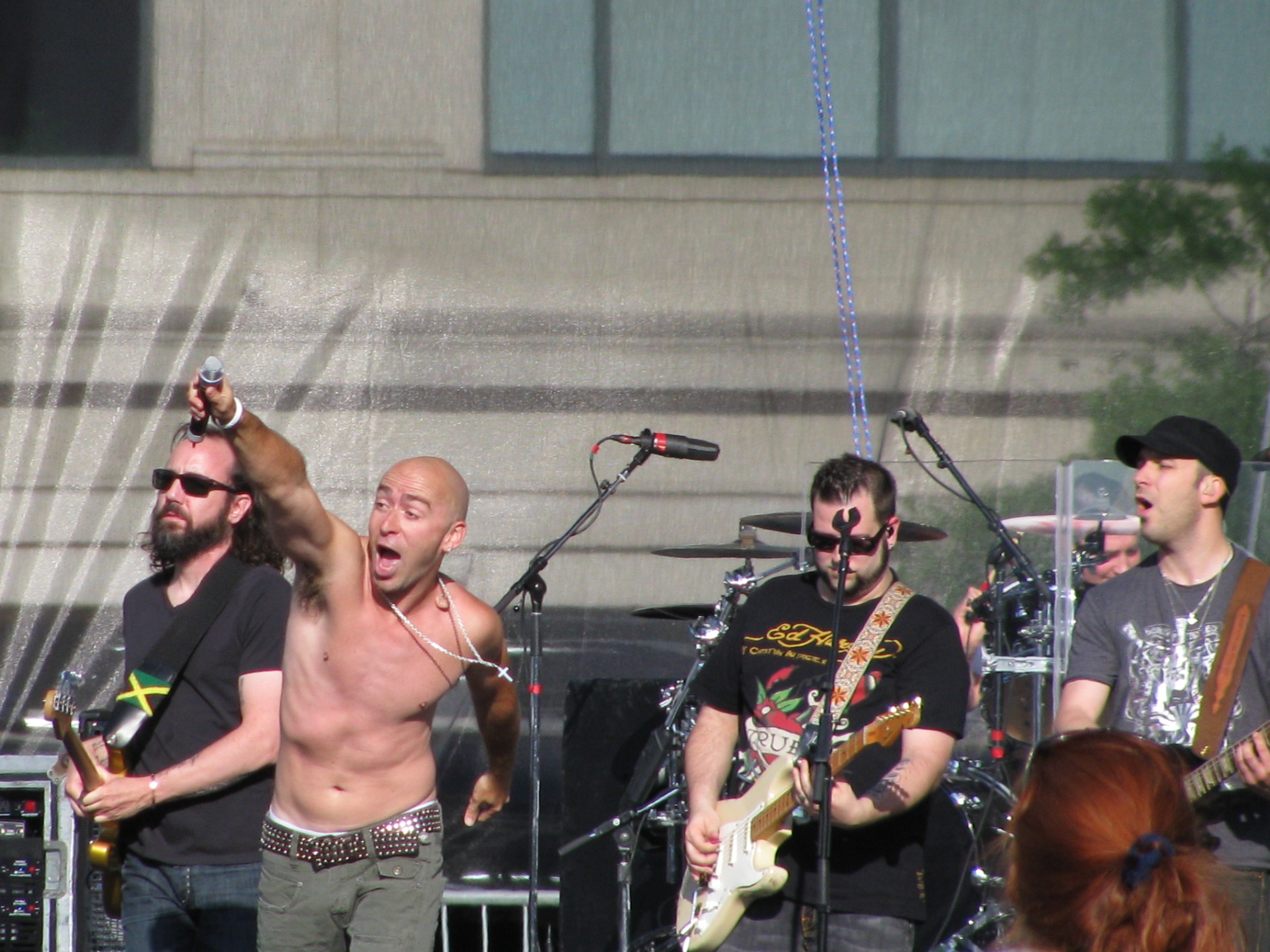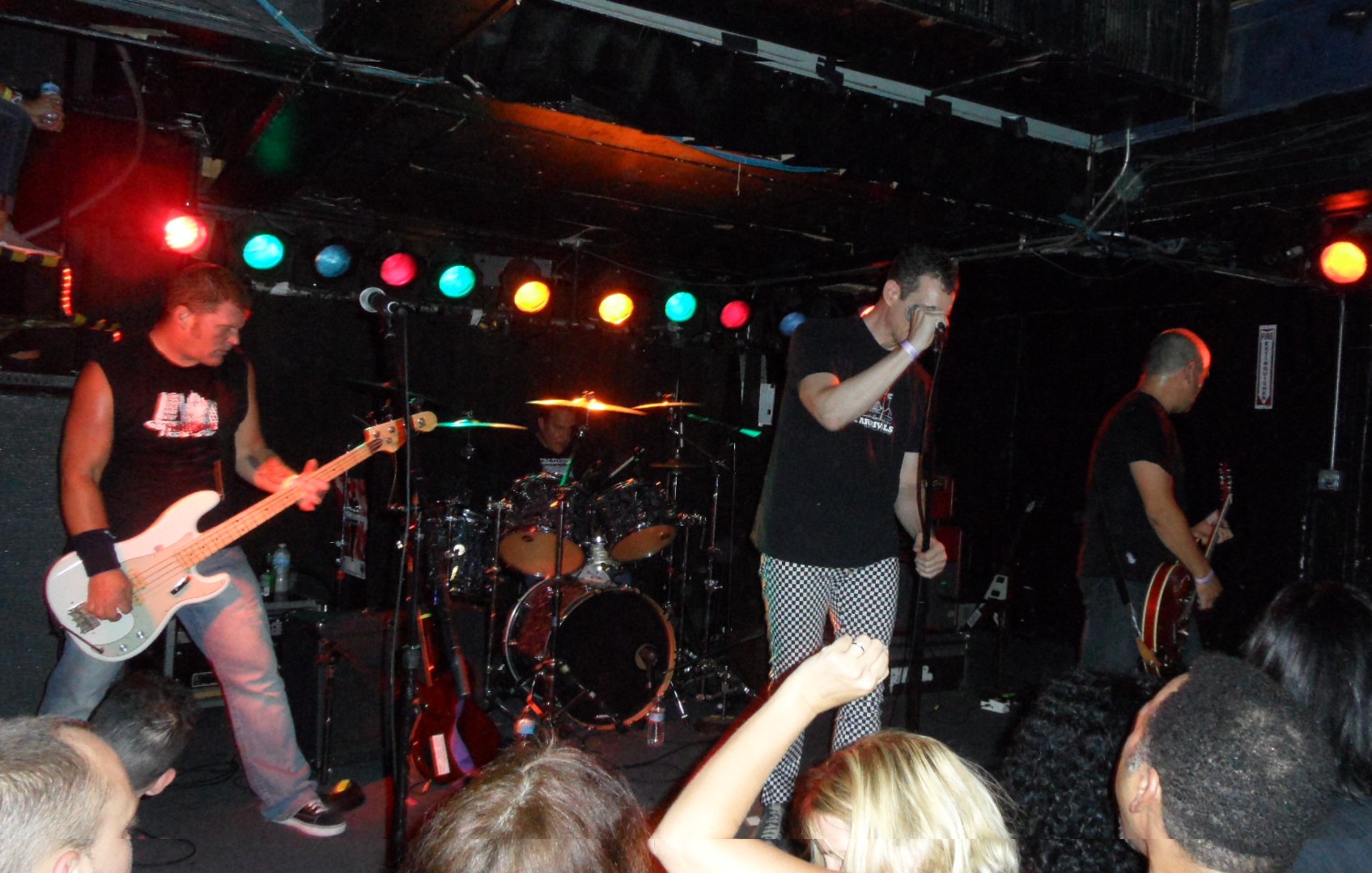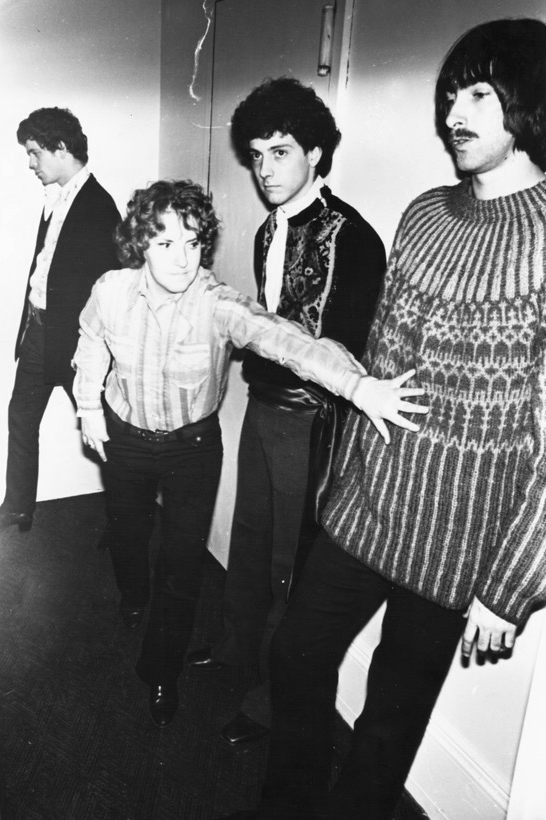|
I Can't Believe It's Teddybears STHLM
''I Can't Believe It's Teddybears STHLM'' is the second studio album by Teddybears STHLM. It was released in 1996 by MVG Records, MVG. Track listing All songs by Teddybears STHLM & lyrics by Patrik Arve, unless otherwise noted. #"Magic Finger" - 3:33 #"Two Time Nation" - 3:33 #"Fish Out of Water" - 2:57 #"Irresistible Itch" - 2:38 #"Kanzi" - 3:49 #"Rude Criminal" - 2:46 #"The Robots" - 3:02 (music & lyrics: Ralf Hütter, Florian Schneider & Karl Bartos) #"Jim" - 5:04 #"Adapted" - 1:54 #"Fellowship Blinkers" - 2:32 #"Stumbles & Falls" - 4:06 #"Me, Mum & Daddy" - 2:25 #(untitled hidden track) #"Boris" - 3:44 Musicians * Big Sweet Poppa Pat - vocals & human beatbox * Jocko Apa - bass & vocals * Klan Åhlund - guitar * Erik Olsson - drums * Christian Falcon Falk - drums * Sleepy - scratches * Per Lindvall - percussion References *[ ''I Can't Believe It's Teddybears STHLM''] at Allmusic 1996 albums Teddybears (band) albums {{1990s-rock-album-stub ... [...More Info...] [...Related Items...] OR: [Wikipedia] [Google] [Baidu] |
Teddybears STHLM
Teddybears (formerly Teddybears STHLM) is a Swedish music group formed in Stockholm in 1991. The group consists of members Patrik Arve, Joakim Åhlund, and Klas Åhlund. Initially starting as a hardcore punk band, Teddybears began to incorporate a variety of sounds from hip hop, pop, rock, dancehall, and electronica after a few years. The band was originally named Skull but changed its name to Teddybears Sthlm shortly before Klas Åhlund joined the group. In 2006, the band dropped “Sthlm” from its name and became simply Teddybears. Career 1991 - 1992 Joakim Åhlund was a member of the grindcore band Skull, alongside Glenn Sundell, Patrik Lindqvist, and Jens Näsström. For a period, Åhlund left the band, and during his absence, Patrik Arve joined as the vocalist. Åhlund later returned, and it was then that he got to know Arve, leading to the band changing its name from Skull to Teddybears Sthlm. In an interview with Göteborgs-Tidningen, Joakim Åhlund explained the reaso ... [...More Info...] [...Related Items...] OR: [Wikipedia] [Google] [Baidu] |
Alternative Rock
Alternative rock (also known as alternative music, alt-rock or simply alternative) is a category of rock music that evolved from the independent music underground of the 1970s. Alternative rock acts achieved mainstream success in the 1990s with the likes of the grunge subgenre in the United States, and the Britpop and shoegaze subgenres in the United Kingdom and Ireland. During this period, many record labels were looking for "alternatives", as many Arena rock, corporate rock, hard rock, and glam metal acts from the 1980s were beginning to grow stale throughout the music industry. The emergence of Generation X as a Culture, cultural force in the 1990s also contributed greatly to the rise of alternative music. "Alternative" refers to the genre's distinction from mainstream or arena rock, commercial rock or pop. The term's original meaning was broader, referring to musicians influenced by the musical style or independent, DIY ethic, DIY ethos of late-1970s punk rock.di Perna, A ... [...More Info...] [...Related Items...] OR: [Wikipedia] [Google] [Baidu] |
Trip Hop
Trip hop is a musical genre that has been described as a psychedelic music, psychedelic fusion of hip hop music, hip hop and electronica with slow tempos and an atmospheric sound. The style emerged as a more experimental music, experimental variant of breakbeat from the Bristol underground scene, Bristol sound scene of the late 1980s and early 1990s, incorporating influences from jazz, soul music, soul, funk, dub reggae, rap music, rap, as well as sampling (music), sampling from movie soundtracks and other eclectic sources. Pioneering trip hop acts include Massive Attack, Unkle, UNKLE, Tricky (musician), Tricky, and Portishead (band), Portishead. The term was first coined in a 1994 ''Mixmag'' piece about American producer DJ Shadow. Trip hop achieved commercial success in the 1990s, and has been described as "Europe's alternative choice in the second half of the '90s". Characteristics Common musical aesthetics include a bass-heavy drumbeat, often providing the slowed down brea ... [...More Info...] [...Related Items...] OR: [Wikipedia] [Google] [Baidu] |
Hardcore Punk
Hardcore punk (commonly abbreviated to hardcore or hXc) is a punk rock music genre#subtypes, subgenre and subculture that originated in the late 1970s. It is generally faster, harder, and more aggressive than other forms of punk rock. Its roots can be traced to earlier punk scenes in San Francisco and Punk rock in California, Southern California which arose as a reaction against the still predominant History of the hippie movement, hippie cultural climate of the time. It was also inspired by Washington, D.C., hardcore#History, Washington, D.C., and Punk rock#New York City, New York punk rock and early proto-punk. Hardcore punk generally eschews commercialism, the established music industry and "anything similar to the characteristics of Rock music, mainstream rock" and often addresses social and political topics with "confrontational, politically charged lyrics". Hardcore sprouted underground scenes across the United States in the early 1980s, particularly in Los Angeles, San Fr ... [...More Info...] [...Related Items...] OR: [Wikipedia] [Google] [Baidu] |
Post-hardcore
Post-hardcore is a punk rock music genre that maintains the aggression and intensity of hardcore punk but emphasizes a greater degree of creative expression. Like the term " post-punk", the term "post-hardcore" has been applied to a broad constellation of groups. Initially taking inspiration from post-punk and noise rock, post-hardcore began in the 1980s with bands like Hüsker Dü and Minutemen. The genre expanded in the 1980s and 1990s with releases by bands from cities which had established hardcore scenes, such as Fugazi from Washington, D.C. as well as groups such as Big Black, Jawbox, Quicksand, and Shellac who stuck closer to post-hardcore's noise rock roots. Dischord Records became a major nexus of post-hardcore during this period. The genre also began to incorporate more dense, complex, and atmospheric instrumentals with bands like Slint and Unwound, and also experienced some crossover from indie rock with bands like The Dismemberment Plan. In the early- an ... [...More Info...] [...Related Items...] OR: [Wikipedia] [Google] [Baidu] |
Noise Rock
Noise rock (sometimes called noise punk) is a noise music, noise-oriented style of experimental rock that spun off from punk rock in the 1980s. Drawing on movements such as minimal music, minimalism, industrial music, and New York hardcore, artists indulge in extreme levels of distortion through the use of electric guitars and, less frequently, electronic instrumentation, either to provide percussive sounds or to contribute to the overall arrangement. Some groups are tied to song structures, such as Sonic Youth. Although they are not representative of the entire genre, they helped popularize noise rock among alternative rock audiences by incorporating melodies into their droning textures of sound, which set a template that numerous other groups followed. Other early noise rock bands were Big Black, Swans (band), Swans and the Jesus Lizard. Characteristics Noise rock fuses Rock music, rock to noise, usually with recognizable "rock" instrumentation, but with greater use of di ... [...More Info...] [...Related Items...] OR: [Wikipedia] [Google] [Baidu] |
MVG Records (MVGs)
{{dab ...
MVG may refer to: *Michael van Gerwen, a professional darts player *MVG, the airline code for Moldavian Airlines *''Mothra vs. Godzilla'', 1964 film *Münchner Verkehrsgesellschaft or Munich Transportation Company, the company responsible for operating public transport in Munich, Germany :*MVG Museum, Munich museum about the above company :*MVG Class A, class of train operated by the above company :*MVG Class B, class of train operated by the above company :*MVG Class C, class of train operated by the above company See also *List of Major Vegetation Groups in Australia This is a list of Major Vegetations Groups and Subgroups in Australia. Major Vegetation Groups and Major Vegetation Subgroups are categories used by the Department of the Environment and Energy as part of its National Vegetation Information System ... [...More Info...] [...Related Items...] OR: [Wikipedia] [Google] [Baidu] |
Christian Falk
Christian Falk (25 April 1962 – 24 July 2014) was a Swedish record producer and musician. Falk started his recording career with the band Madhouse in the early 1980s. He later moved on and became a founding member of post-punk band Imperiet. In the early 1990s, he emerged as a producer and DJ in the emerging Swedish hip hop, soul and club scene. He switched comfortably between different styles of music; with Papa Dee he did dancehall hip hop, with Stonefunkers it was Daisy Age-inspired hip hop and P-Funk, dancehall with Swing-A-Ling Sound System, R&B and acid jazz with Blacknuss, hip hop with Petter, the Timebomb collective and Timbuktu, hardcore and electro with The Teddybears, and club soul with Kayo, among many others. He also co-wrote the track "Electricity", and several other tracks on the 1995 album '' We Care'' from alt-rockers Whale. He released the hit single "Make It Right" under his own name in 2000, with vocals by Demetrius Price, credited Demetreus. In 200 ... [...More Info...] [...Related Items...] OR: [Wikipedia] [Google] [Baidu] |
Step On It (EP)
Teddybears (formerly Teddybears STHLM) is a Swedish music group formed in Stockholm in 1991. The group consists of members Patrik Arve, Joakim Åhlund, and Klas Åhlund. Initially starting as a hardcore punk band, Teddybears began to incorporate a variety of sounds from hip hop, pop, rock, dancehall, and electronica after a few years. The band was originally named Skull but changed its name to Teddybears Sthlm shortly before Klas Åhlund joined the group. In 2006, the band dropped “Sthlm” from its name and became simply Teddybears. Career 1991 - 1992 Joakim Åhlund was a member of the grindcore band Skull, alongside Glenn Sundell, Patrik Lindqvist, and Jens Näsström. For a period, Åhlund left the band, and during his absence, Patrik Arve joined as the vocalist. Åhlund later returned, and it was then that he got to know Arve, leading to the band changing its name from Skull to Teddybears Sthlm. In an interview with Göteborgs-Tidningen, Joakim Åhlund explained the reaso ... [...More Info...] [...Related Items...] OR: [Wikipedia] [Google] [Baidu] |
Rock 'n' Roll Highschool
''Rock 'n' Roll Highschool'' is the third studio album by Teddybears STHLM. It was released in 2000 by MVG. This marks the band's transition from punk rock to electronic music Track listing All music & lyrics written by Teddybears STHLM unless otherwise noted. #"Teddybears Live 'n' Direct" #"Rock'n'roll Highschool" (feat. Thomas Rusiak) (lyrics: Thomas Rusiak, Teddybears STHLM) #"Ahead of My Time" (feat. Daddy Boastin') #"Move Over" #" Punkrocker" #"Start at 11" (feat. Eagle-Eye Cherry) #"Skit 1" #"Automatic Lover" #"Tigerman" #"Yours to Keep" (feat. Paola) #"Skit 2" #"Throw Your Hands Up" (feat. Elephant Man & Harry Toddler) (lyrics: Patrick Jackson, O'Neil Bryan, Steven Ventura) #"Digital Cowboy" #''Game for PC'' Musicians Teddybears STHLM * Tiger (Patrik Arve) * Jocko Apa (Joakim Åhlund) * Klas Åhlund * Erik Olsson Additional musicians * DJ Viet-Naam - cuts References * ''Rock 'n' Roll Highschool''at Allmusic AllMusic (previously known as All-Music Guide and AMG) i ... [...More Info...] [...Related Items...] OR: [Wikipedia] [Google] [Baidu] |
Ralf Hütter
Ralf Hütter (born 20 August 1946) is a German musician and composer best known as the lead singer and keyboardist of Kraftwerk, which he founded with Florian Schneider in 1970, and became the only consistent member of the band (although he briefly left the band for several months in 1971), and the only one to have appeared on every single one of the band's albums. On 12 May 2021, Kraftwerk was announced as one of the inductees of the Rock and Roll Hall of Fame. Personal life Hütter was born on 20 August 1946 in Krefeld, Germany. In 2009 he lived near Düsseldorf. He met Florian Schneider while studying improvisation at the Robert Schumann Hochschule. The pair started performing at happenings and art galleries in the late 1960s, subsequently incorporating electronic sounds and building their own Kling Klang Studio. He is a vegetarian. Hütter is a secretive musician who avoids interviews. Hütter is an enthusiastic cycling fan, a fact reflected in some of the band's work. It ... [...More Info...] [...Related Items...] OR: [Wikipedia] [Google] [Baidu] |
Florian Schneider
Florian Schneider-Esleben (7 April 194721 April 2020) was a German musician. He is best known as one of the founding members and leaders of the electronic band Kraftwerk, performing his role with the band until his departure in 2008. Early life Schneider was born on 7 April 1947 in Öhningen, at the time part of the French occupation zone in southern Germany, near the Bodensee, in what would become the state of Baden-Württemberg in 1952. His parents were Paul Schneider-Esleben, an architect, and his wife Evamaria (''née'' van Diemen-Meyerhof). Schneider was Jewish on his mother's side; Paul married the half-Jewish Evamaria in 1946 against the will of his father, who remained a loyal Nazi Party, Nazi. Schneider's family moved to Düsseldorf when he was three years old. Career Schneider founded Kraftwerk Kraftwerk (, ) is a Germany, German Electronic music, electronic band formed in Düsseldorf in 1970 by Ralf Hütter and Florian Schneider. Widely considered innovators a ... [...More Info...] [...Related Items...] OR: [Wikipedia] [Google] [Baidu] |





